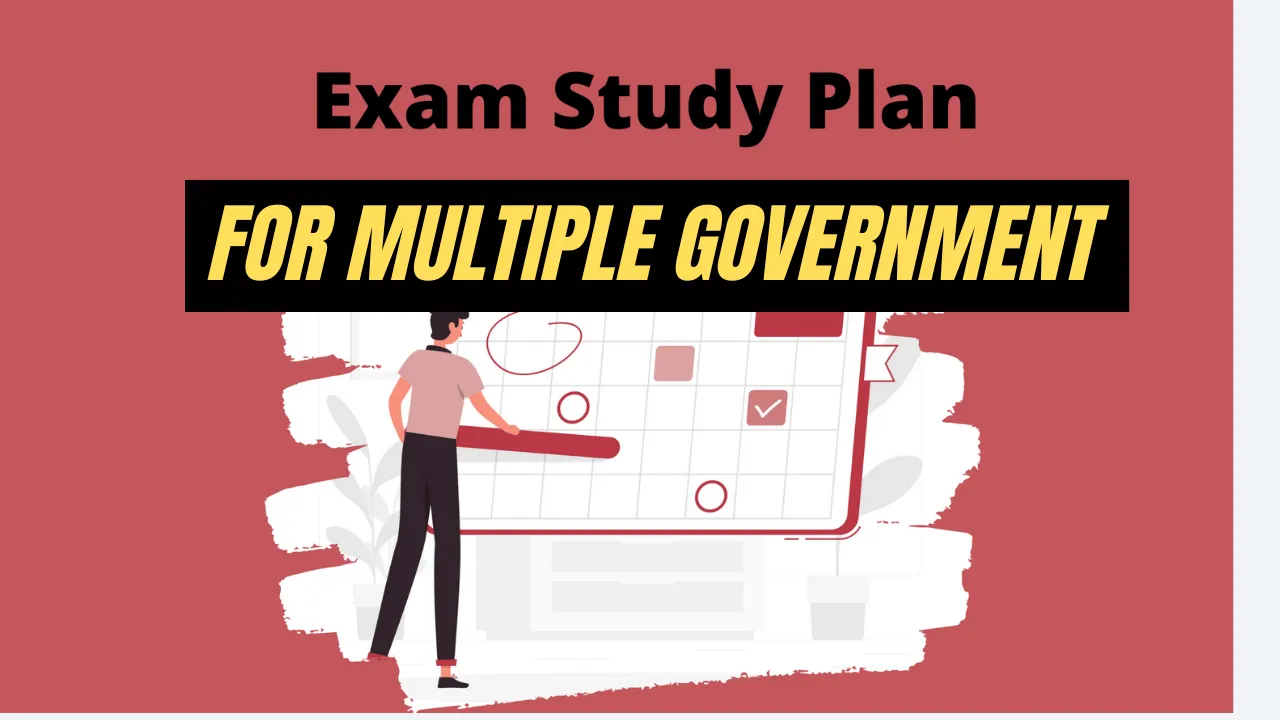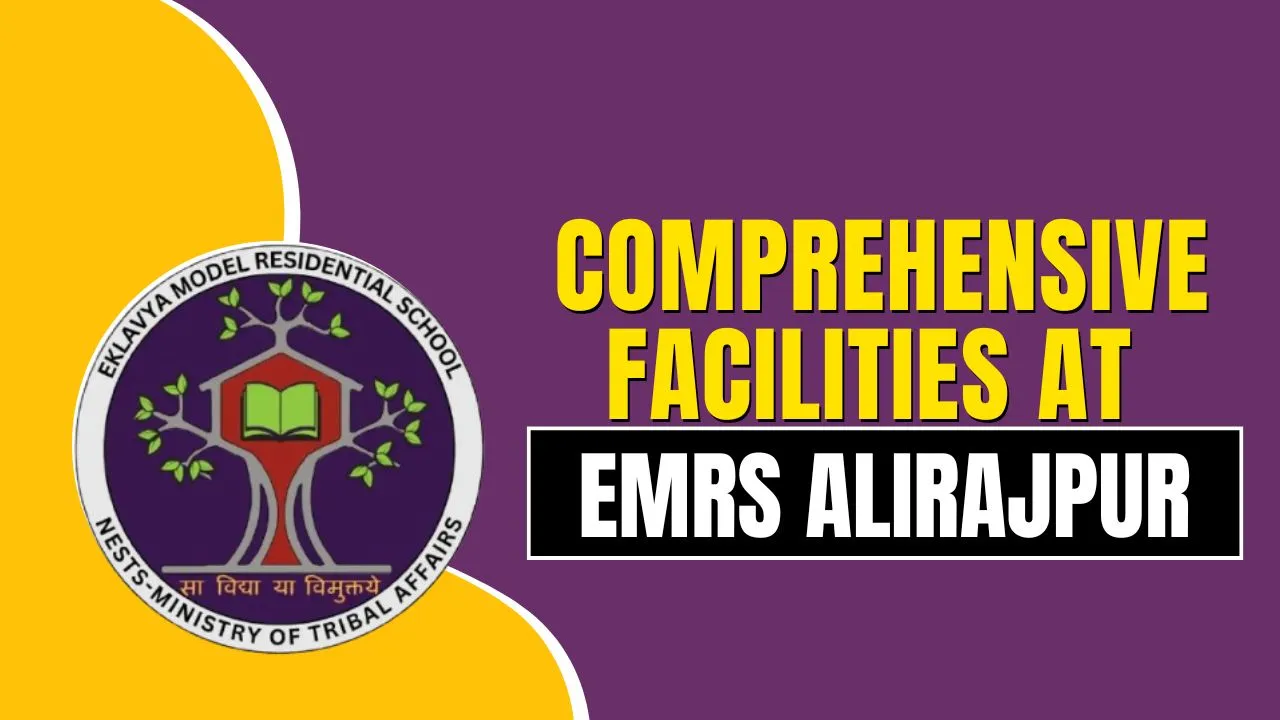Preparing for government exams requires careful planning and dedication, especially when you are aiming for more than one at a time. Handling multiple syllabi, different exam patterns, and varying deadlines can be challenging without a structured strategy. The key to success lies in organizing your study schedule smartly and making the most of your time.
In this article, we’ll guide you step by step on how to create an effective Study Plan for Multiple Government Exams. From understanding the syllabus to managing your time, using the right resources, and maintaining a healthy routine, you’ll learn how to balance preparation for multiple exams efficiently.
Study Plan for Multiple Government Exams
A Study Plan for Multiple Government Exams focuses on creating a practical timetable that allows you to prepare for various exams simultaneously without feeling overwhelmed. The right approach involves prioritizing common subjects, analyzing unique topics, and strategically dividing your study hours. With consistent effort and smart planning, you can cover all necessary areas, revise effectively, and boost your confidence before the exam days.
Overview Table
| Key Steps | Description |
| Understand the Exams | Analyze syllabus, exam patterns, and prioritize based on goals and overlaps |
| Create a Comprehensive Timetable | Allocate time wisely, include revision, allow flexibility, and prevent burnout |
| Strategic Study Techniques | Focus on common subjects, allocate time for unique topics, active learning, and mock tests |
| Resource Management | Use quality study materials, online resources, and solve previous years’ papers |
| Maintain a Healthy Routine | Balance study with proper diet, exercise, sleep, and stress management |
Understand the Exams
The first step in building your Study Plan for Multiple Government Exams is understanding the requirements of each exam. Start by thoroughly analyzing the syllabus for each test. Identify subjects that are common across all exams, such as general awareness, reasoning, or mathematics, and note any unique topics specific to certain exams.
It’s also crucial to study the exam patterns. Look at the number of sections, types of questions, and time limits. Going through previous years’ question papers helps you recognize recurring themes and question difficulty. Prioritize exams based on your career goals and exam dates, and focus on those with overlapping subjects for maximum efficiency.
Create a Comprehensive Timetable
Once you understand what each exam demands, it’s time to design a realistic timetable. Divide your study hours wisely, giving more time to challenging subjects and common topics. Allocate focused study blocks, with short breaks to maintain concentration.
Include flexibility in your schedule to accommodate unexpected events, family responsibilities, or rest days. Make sure to schedule regular revision slots to revisit what you’ve studied. Balancing consistency with adaptability will help you stay on track without feeling drained.
Strategic Study Techniques
Effective strategies play a major role in your Study Plan for Multiple Government Exams. Here’s how to approach it:
Common Subjects
Start by mastering subjects that are common across all exams. This saves time and ensures you build a strong foundation that benefits multiple exams at once.
Unique Topics
Next, dedicate specific time slots for unique topics that are exclusive to certain exams. Use focused study sessions and resources designed for these subjects to avoid confusion.
Active Learning
Incorporate active learning methods such as summarizing concepts, teaching them to others, or solving practical problems. This boosts understanding and retention.
Mock Tests
Regularly take mock tests to simulate real exam conditions. Analyze your results to identify weak areas and improve them over time. Mock tests not only prepare you for the actual exam environment but also enhance your time management skills.
Resource Management
The right resources make a big difference in your preparation. Invest in high-quality study materials such as trusted textbooks, official guides, and updated practice papers. For subjects common to multiple exams, look for comprehensive books covering all aspects.
Don’t underestimate the power of online platforms. Use apps, video tutorials, and online forums to clarify doubts and stay motivated. Solving previous years’ papers is equally essential to familiarize yourself with the exam format and highlight important topics.
Maintain a Healthy Routine
Preparing for multiple exams demands mental and physical stamina. A healthy routine ensures you stay energized and focused:
- Balanced Diet: Eating nutritious food keeps your energy levels stable throughout the day.
- Regular Exercise: Physical activities help reduce stress and improve concentration.
- Adequate Sleep: Quality sleep sharpens memory and boosts cognitive function.
- Stress Management: Practice meditation, deep breathing, or relaxation techniques to maintain mental calmness.
Neglecting your well-being can affect your productivity and focus, so make self-care part of your study plan.
Key Benefits of a Study Plan
Here are two crucial aspects of following a strong Study Plan for Multiple Government Exams:
- Efficient Use of Time:
- Helps you balance preparation for multiple exams by focusing on common subjects.
- Ensures systematic coverage of all topics without last-minute cramming.
- Better Performance and Confidence:
- Regular mock tests and revisions improve accuracy, speed, and retention.
- Boosts confidence by tracking progress and adjusting study techniques accordingly.
Frequently Asked Questions
1. How can I manage time while preparing for multiple government exams?
Prioritize common subjects, create a balanced timetable, and use mock tests to improve time management.
2. What is the importance of analyzing previous years’ papers?
It helps you understand the exam pattern, difficulty level, and important topics that frequently appear.
3. How often should I revise topics?
Ideally, you should revise every week to ensure retention and cover all important areas consistently.
4. Is it possible to prepare for different exams at once?
Yes, with a well-structured study plan focusing on common subjects and effective time allocation, it is achievable.
5. How can I stay motivated during preparation?
Set realistic goals, track progress regularly, and maintain a healthy routine to stay positive and focused.
Final Thought
Building an effective Study Plan for Multiple Government Exams may seem challenging, but with proper strategy, consistency, and smart resource management, you can tackle multiple exams confidently. Remember to stay flexible, revise regularly, and take care of your mental and physical well-being throughout the process.
Feel free to share your own study strategies in the comments below! Also, explore more tips and techniques to help you succeed in your government exam journey.











